
John Sides
@johnsides.bsky.social
Professor of Political Science, Vanderbilt University - https://johnsides.org/
Publisher of Good Authority - https://goodauthority.org/
Publisher of Good Authority - https://goodauthority.org/
Much more data from @tesler.bsky.social @goodauth.bsky.social. Tells us something about the backlash to DOGE and the OBBB, I think. And buttresses Democrats' stance on extending ACA subsidies.
t.co/bs3pJYTlpi
t.co/bs3pJYTlpi
https://goodauthority.org/news/americans-are-in-an-unusually-liberal-fiscal-policy-mood-shutdown/
t.co
October 6, 2025 at 4:51 PM
Much more data from @tesler.bsky.social @goodauth.bsky.social. Tells us something about the backlash to DOGE and the OBBB, I think. And buttresses Democrats' stance on extending ACA subsidies.
t.co/bs3pJYTlpi
t.co/bs3pJYTlpi
A very large group is ambivalent about democracy vs. autocracy. More on this in a new piece from me @goodauth.bsky.social.
goodauthority.org/news/autocra...
goodauthority.org/news/autocra...

Autocracy or democracy? More and more people are ambivalent.
When faced with the choice between a dictator and democracy, some people choose both.
goodauthority.org
September 3, 2025 at 2:12 PM
A very large group is ambivalent about democracy vs. autocracy. More on this in a new piece from me @goodauth.bsky.social.
goodauthority.org/news/autocra...
goodauthority.org/news/autocra...
Finally, Scott Abramson and Sharece Thrower. "The direct cost to voters of polling site closures and consolidation." Very cool study from here in Nashville!
www.cambridge.org/core/journal...
www.cambridge.org/core/journal...

September 2, 2025 at 1:14 AM
Finally, Scott Abramson and Sharece Thrower. "The direct cost to voters of polling site closures and consolidation." Very cool study from here in Nashville!
www.cambridge.org/core/journal...
www.cambridge.org/core/journal...
Next, Cindy Kam and VU Ph.D. @amengel.bsky.social, "A racial reckoning? racial attitudes in the wake of the murder of George Floyd."
www.cambridge.org/core/journal...
www.cambridge.org/core/journal...
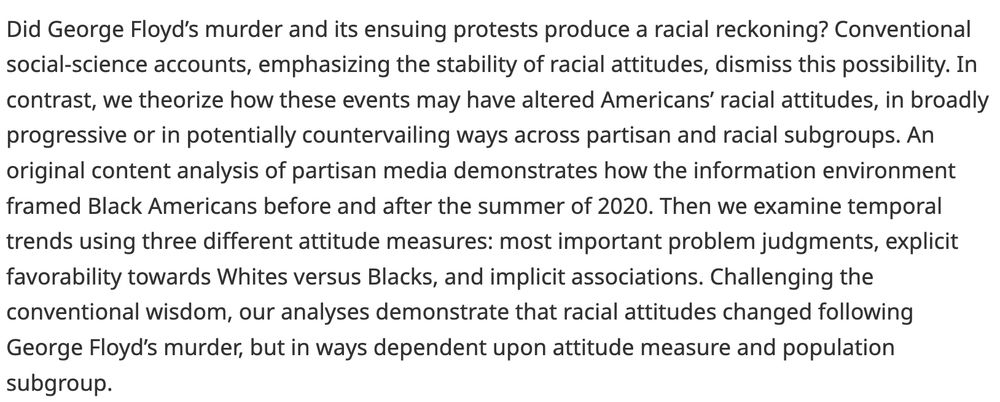
September 2, 2025 at 1:14 AM
Next, Cindy Kam and VU Ph.D. @amengel.bsky.social, "A racial reckoning? racial attitudes in the wake of the murder of George Floyd."
www.cambridge.org/core/journal...
www.cambridge.org/core/journal...
For more, see here: goodauthority.org/news/america...
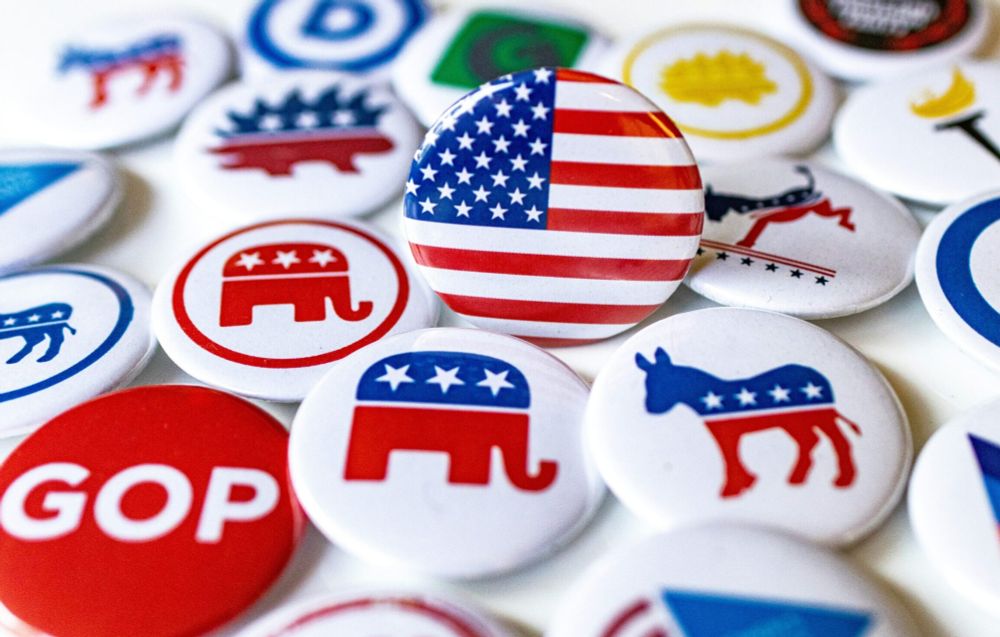
Americans’ views of the opposite party have declined even further.
New data shows another increase in “affective polarization.”
goodauthority.org
July 1, 2025 at 2:28 PM
For more, see here: goodauthority.org/news/america...
People also appear to raise the out-party less favorably than "out-partisans" (i.e., Ds rate the "Republican Party" less favorably than "Republicans"). Suggests that "the party" calls to mind party leaders and activists not just ordinary folks, as some research has suggested.
July 1, 2025 at 2:28 PM
People also appear to raise the out-party less favorably than "out-partisans" (i.e., Ds rate the "Republican Party" less favorably than "Republicans"). Suggests that "the party" calls to mind party leaders and activists not just ordinary folks, as some research has suggested.
Once you separate by mode, you get the expected finding: people express less favorable views of the out-party when they complete the survey themselves. Raises the possibility that the ANES was underestimating affective polarization because it used only face-to-face interviews for many years!
July 1, 2025 at 2:28 PM
Once you separate by mode, you get the expected finding: people express less favorable views of the out-party when they complete the survey themselves. Raises the possibility that the ANES was underestimating affective polarization because it used only face-to-face interviews for many years!
Methodological point: you have to separate the later ANES studies by survey mode, because out-party feelings are cooler in the self-completed mode than in face-to-face or phone interviews. If you don't, you're conflating changes over time with changes in mode (and I've seen some people do this).
July 1, 2025 at 2:28 PM
Methodological point: you have to separate the later ANES studies by survey mode, because out-party feelings are cooler in the self-completed mode than in face-to-face or phone interviews. If you don't, you're conflating changes over time with changes in mode (and I've seen some people do this).
In general, in-party feelings are stable. Perhaps they were higher in the 1960s, although the change the object being evaluated (e.g., from "Democrats" to "Democratic Party") makes it harder to compare.
But as we've known, out-party feelings have become cooler. 2024 only continued the trend.
But as we've known, out-party feelings have become cooler. 2024 only continued the trend.
July 1, 2025 at 2:28 PM
In general, in-party feelings are stable. Perhaps they were higher in the 1960s, although the change the object being evaluated (e.g., from "Democrats" to "Democratic Party") makes it harder to compare.
But as we've known, out-party feelings have become cooler. 2024 only continued the trend.
But as we've known, out-party feelings have become cooler. 2024 only continued the trend.
Then, finally, this *extremely* topical piece by @johnadearborn.bsky.social : “Contesting the Reach of the Rights Revolution: The Reagan Administration and the Unitary Executive”
www.cambridge.org/core/journal...
www.cambridge.org/core/journal...
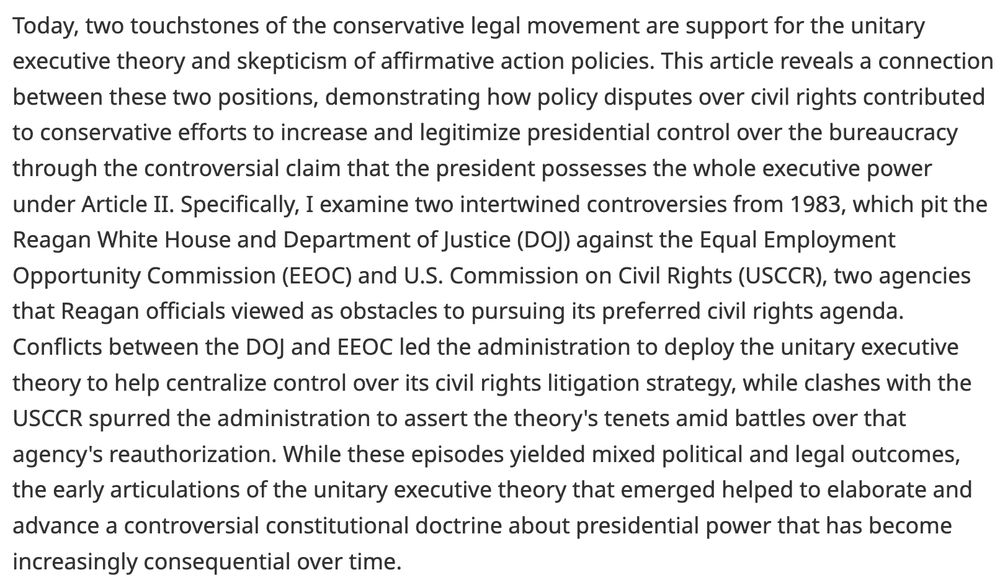
June 20, 2025 at 7:02 PM
Then, finally, this *extremely* topical piece by @johnadearborn.bsky.social : “Contesting the Reach of the Rights Revolution: The Reagan Administration and the Unitary Executive”
www.cambridge.org/core/journal...
www.cambridge.org/core/journal...
Erin York and Daniel Tavana have this piece in the BJPS: “Legislative Cooptation in Authoritarian Regimes: Policy Cooperation in the Kuwait National Assembly”
www.cambridge.org/core/journal...
www.cambridge.org/core/journal...
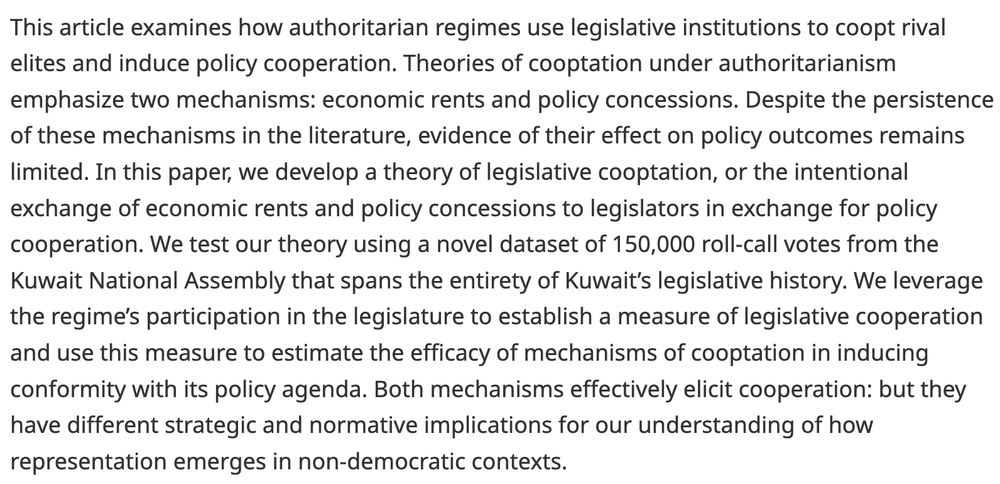
June 20, 2025 at 7:02 PM
Erin York and Daniel Tavana have this piece in the BJPS: “Legislative Cooptation in Authoritarian Regimes: Policy Cooperation in the Kuwait National Assembly”
www.cambridge.org/core/journal...
www.cambridge.org/core/journal...
And then Andres Gannon: “Complementarity in alliances: How strategic compatibility and hierarchy promote efficient cooperation in international security”
onlinelibrary.wiley.com/doi/full/10....
onlinelibrary.wiley.com/doi/full/10....
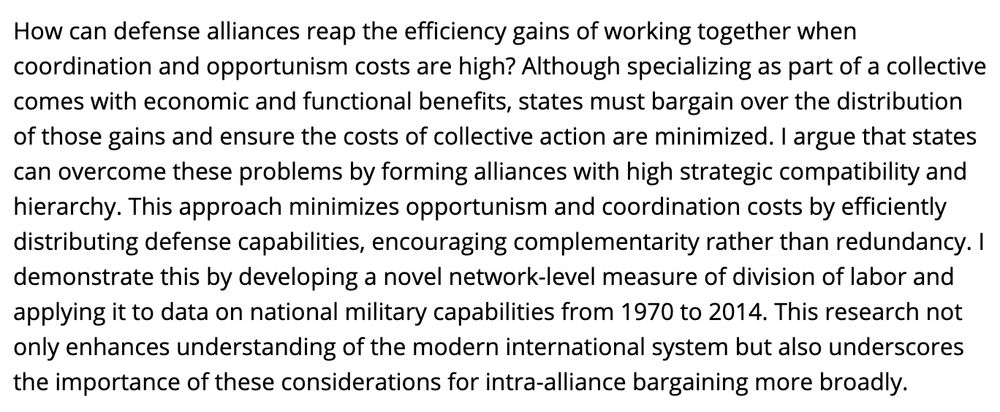
June 20, 2025 at 7:02 PM
And then Andres Gannon: “Complementarity in alliances: How strategic compatibility and hierarchy promote efficient cooperation in international security”
onlinelibrary.wiley.com/doi/full/10....
onlinelibrary.wiley.com/doi/full/10....
There’s also 2 pieces in the American Journal of Political Science. Federica Izzo and colleagues are first with “Argumentation Strategies in Party Competition.”
onlinelibrary.wiley.com/doi/full/10....
onlinelibrary.wiley.com/doi/full/10....
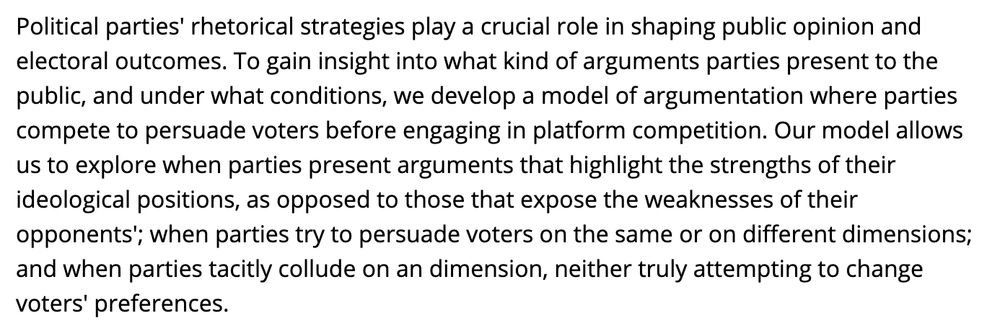
June 20, 2025 at 7:02 PM
There’s also 2 pieces in the American Journal of Political Science. Federica Izzo and colleagues are first with “Argumentation Strategies in Party Competition.”
onlinelibrary.wiley.com/doi/full/10....
onlinelibrary.wiley.com/doi/full/10....
Then, @brentonkenkel.bsky.social and Kristopher Ramsay: “The Effective Power of Military Coalitions: A Unified Theoretical and Empirical Model”
www.journals.uchicago.edu/doi/10.1086/...
www.journals.uchicago.edu/doi/10.1086/...

June 20, 2025 at 7:02 PM
Then, @brentonkenkel.bsky.social and Kristopher Ramsay: “The Effective Power of Military Coalitions: A Unified Theoretical and Empirical Model”
www.journals.uchicago.edu/doi/10.1086/...
www.journals.uchicago.edu/doi/10.1086/...

